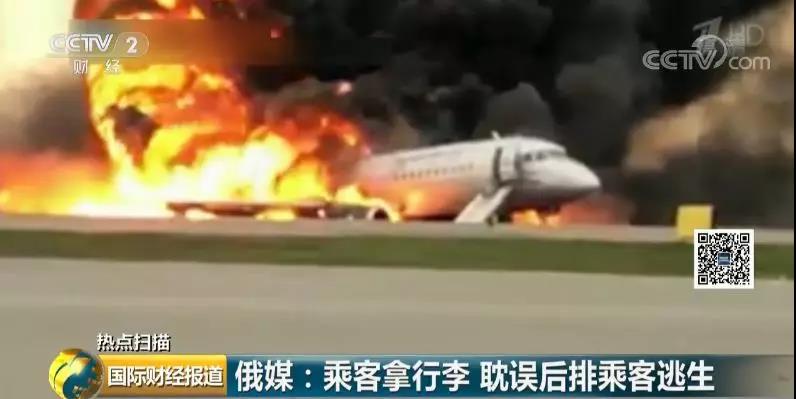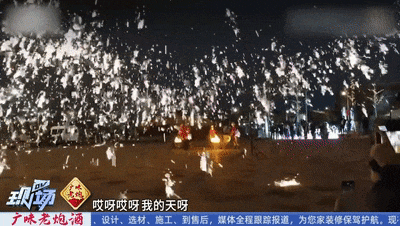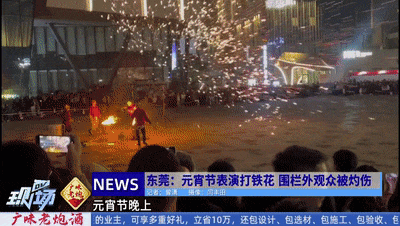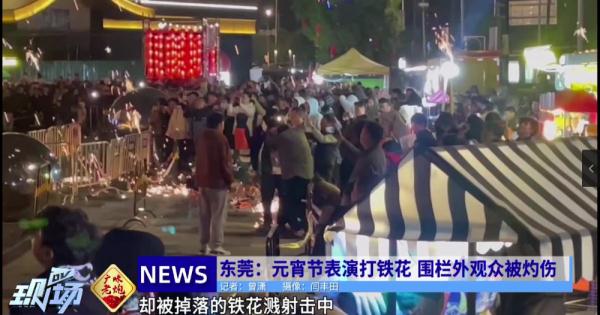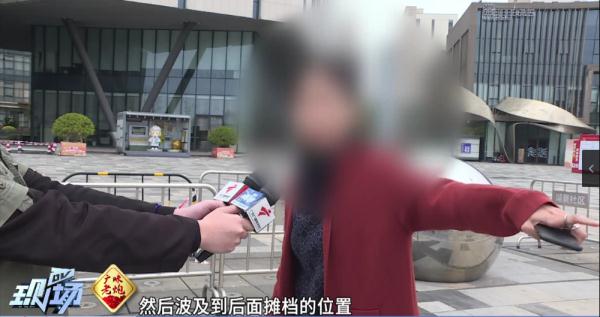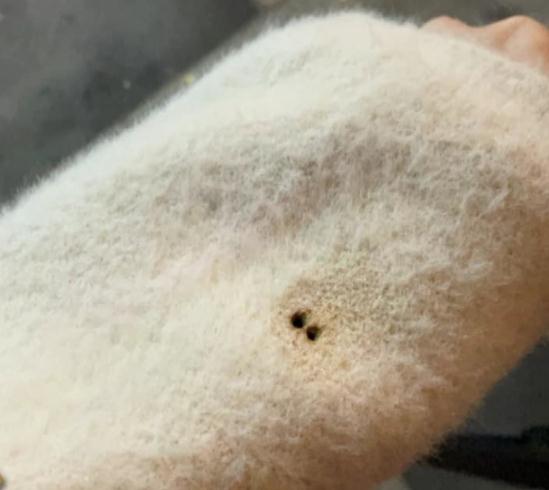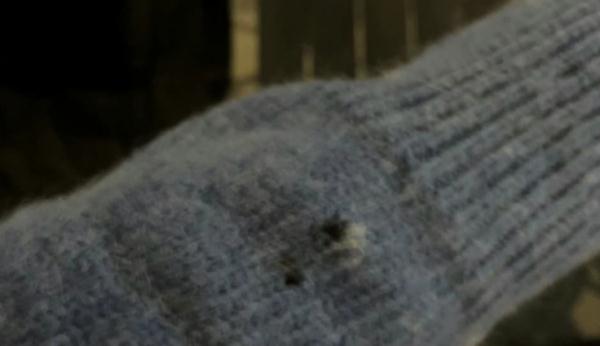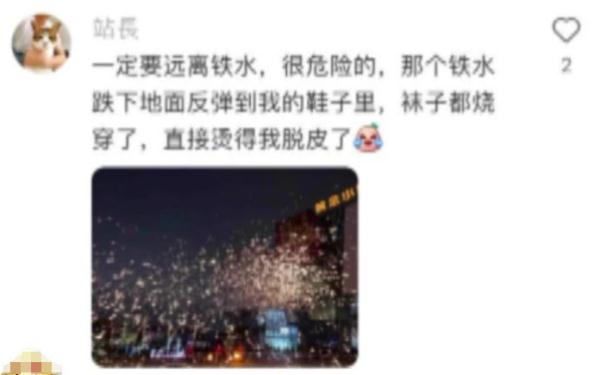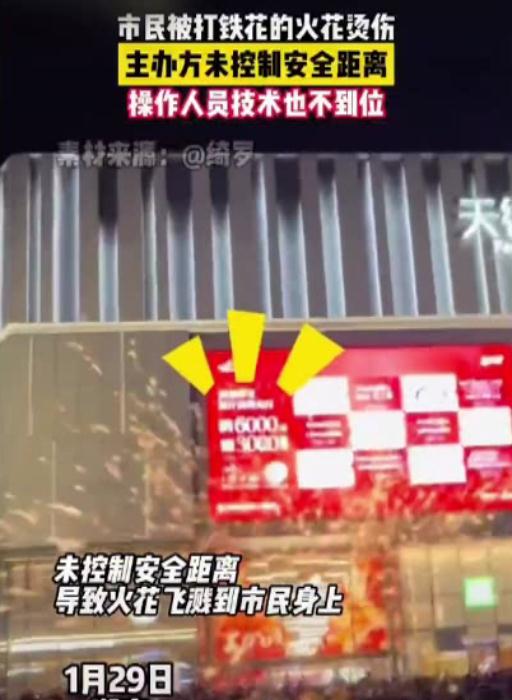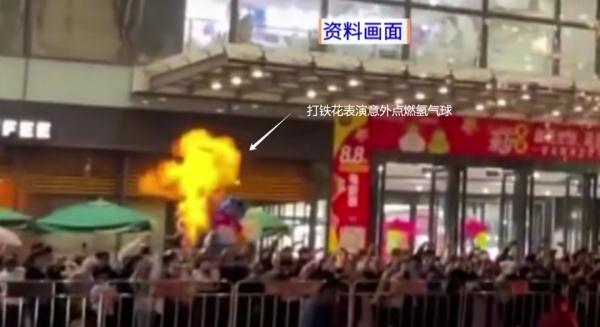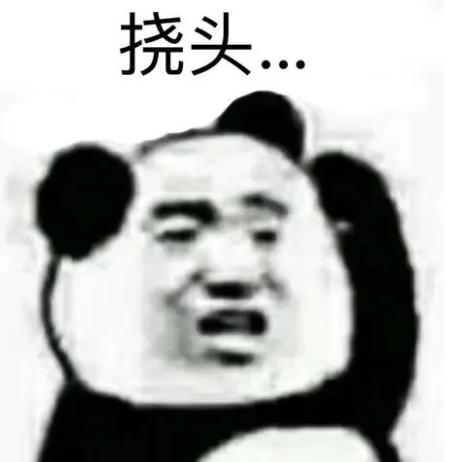Langfang, Hebei Province, the nearest city to Beijing, is the core area for the coordinated development of Beijing, Tianjin and Hebei. Once upon a time, Langfang people tasted the advantage of "enjoying the cool under a big tree" and realized the "growing trouble" of being less competitive and attractive than Beijing and Tianjin.
On February 26th, 2014, General Secretary of the Supreme Leader hosted a forum in Beijing, which promoted the coordinated development of Beijing-Tianjin-Hebei to a national strategy for the first time, and opened a new chapter in the development of Beijing-Tianjin-Hebei. In the past seven years, new progress has been made in the practice of exploring the optimal development model and realizing regional coordinated development in densely populated areas.
The sense of urgency of Langfang people is increasing day by day: how should Langfang settle down?
Facing the choice, Langfang should make an answer.
Seeking change: solving "worries" with "Excellence"
Langfang has experienced the process of bearing heavy burdens and gaining momentum.
The growth rate of GDP is lower than that of the whole province for two consecutive years; The added value of real estate accounts for 17.8% of GDP; Investment in fixed assets is mainly driven by infrastructure construction, and the major industries put into production are obviously insufficient, and there is a lack of major industrial support projects … …
"The biggest challenge for our development is weak economic growth and insufficient development potential. Overdeveloped real estate has squeezed the development space of the real economy and raised the land price of the project, resulting in less physical projects and insufficient development support in recent years. " Yang Xiao, secretary of the Langfang Municipal Party Committee, analyzed that the biggest opportunity for Langfang’s development is the coordinated development of Beijing, Tianjin and Hebei and the accelerated construction of xiong’an new area. In particular, the construction of Beijing-Tianjin-Hebei on the track has been accelerated, so that the advantages of Langfang’s "location+transportation" have truly aggregated and become a reality, and various resource elements have accelerated.
The advantage of Langfang lies in the "corridor". How to give full play to the location advantage of the "golden corridor" between Beijing, Tianjin and Xiongxiong? Langfang’s worry lies in "housing". How to speed up the cracking of the abnormal industrial structure of real estate "one production dominates the whole"? The key to exploring the road in Langfang is to solve "worries" with "Excellence".
In the strategic layout of Beijing-Tianjin-Hebei urban agglomeration, Langfang not only has location advantages, but also has many real money policy dividends. With the implementation of relevant regional development plans, "crevice confusion" has become a "rising wing" to accelerate development — —
In April 2017, xiong’an new area was born, and Wen ‘an, Dacheng and Bazhou in the south of Langfang were able to take advantage of their geographical proximity and popularity, and entered a new track in docking and serving Xiong ‘an.
On September 25, 2019, Beijing Daxing International Airport was officially put into operation. Relying on this world-class aviation hub, China’s first airport economic zone, free trade pilot zone and comprehensive bonded zone across provincial administrative regions successively landed, and Beijing Daxing District and Langfang City shared the "three-zone superposition" bonus.
On March 17th, 2020, the National Development and Reform Commission issued the Coordinated Development Plan of Tongzhou District in Beijing and Sanhe, Dachang and Xianghe Counties in Hebei Province, which gradually cracked down the barriers and obstacles that restricted the integration of the "three northern counties" into Tongzhou District.
Around these three opportunities, Langfang has laid out three major articles: the three northern counties should speed up their integration into the construction of Beijing’s sub-center, build an efficient and integrated infrastructure network, strengthen industrial cooperation, jointly create a natural and beautiful ecological environment, and take the lead in realizing the integrated and coordinated development of the three northern counties and Tongzhou District; Relying on the rise of the airport economic zone, the central plate is coordinated with the Beijing area in planning, misplaced in industry and in the same direction and standard in policy, developing high-end high-tech industries and creating a window for opening up; By serving xiong’an new area to take advantage of the development, the Southern Plate promotes the communication, builds a green ecological barrier, strengthens the industrial cooperation and docking, and realizes the coordinated development, linkage development, dislocation development and integrated development with xiong’an new area.
"In the next five years, we will make every effort to promote coordinated development and accelerate the creation of a pioneering area for integrated development with Beijing and Tianjin. Insist on grasping and making good use of the major opportunities for coordinated development, and do a solid job in deepening Beijing, integrating into the airport, and leveraging Xiong’ an to promote the comprehensive improvement of the three major sectors in North, South and Central China. " This passage was written into the "Government Work Report" of Langfang City.
Make a decision and move, and move is practical. Since 2019, Beijing and Langfang North County have signed more than 120 projects with a total investment of 80 billion yuan, covering key areas such as high-tech industries, medical and health care, and aged care services.
When inspecting the construction of Daxing Airport in Beijing, General Secretary of Supreme Leader once called the new Beijing airport "a new power source for national development". This "power source" is a strategic opportunity for the future development of Langfang.
Miracles are done. In the "Tenth Five-Year Plan" of Hebei Province, Beijing Daxing International Airport Airport Airport Economic Zone was laid out as "a new investment hotspot and a new economic growth point in the whole province". Following the comprehensive start of 127 projects with a total investment of 16 billion yuan last year, Langfang Airport Economic Zone will start to implement 311 projects with a total investment of 33.5 billion yuan this year, so that it can gradually have the adsorption and bearing capacity of super-large projects.
The government is thinking about change and Philip Burkart, and enterprises are also seeking innovation and change. Dingsheng Investment Group, located in sanhe city, Langfang, is the earliest private enterprise engaged in real estate development in the city. Under the new situation, this enterprise has accelerated its transformation and built a 3D printing science and technology park base.
Zhao Yucheng, deputy general manager of Dingsheng Investment Group, told the reporter that to accelerate the transformation and development of enterprises and build a 3D printing science and technology park base, it is necessary to rely on the advantages of intensive talents and technical resources in Beijing and Tianjin to build factories and platforms for pilot tests, public tests and common technical services to attract 3D printing enterprises to settle in. After the project is completed, it will form the largest 3D printing industry cluster in Beijing, Tianjin and Hebei.
Promoting the "second venture" of private enterprises and letting old trees bloom with new flowers is one of the new growth points that Langfang strives to cultivate. In the main battlefield of economic activities, the strong will of investment cadres and business leaders in Langfang Economic Development Zone and High-tech Zone to seek change and development is beyond words. On May 28th, Langfang fully implemented the "second venture" of private economy for three years, which made many private enterprises like Dingsheng Investment Group full of entrepreneurial passion.
The future of Langfang is limitless.
Population is an important index to measure the vitality of regional development. According to the results of the seventh population census, Langfang, Foshan, Dongguan and other eight prefecture-level cities have been among the ones with a population increase of over 1 million in the past ten years, making them the only finalists in the Beijing-Tianjin-Hebei region. A detailed analysis of the characteristics of population inflow in Langfang shows that the population of sanhe city, Gu ‘an County, Guangyang District, Bazhou City, Anci District and Xianghe County all increased by more than 100,000 people, accounting for 84.31% of the population increase in the past 10 years. It is not difficult to see that the place with the largest population inflow is the area with the closest integration of major national strategies such as the coordinated development of Langfang and Beijing-Tianjin-Hebei, the airport economic zone and the construction of xiong’an new area.
By the end of 2020, Langfang Municipal Committee has defined the urban development orientation of "accelerating the construction of innovative Langfang, digital Langfang, healthy Langfang, safe Langfang and quality Langfang". "We must promote high-quality development that matches the location advantage, is opposite to the economic foundation, is compatible with the requirements of the provincial party Committee, and is in line with the wishes of the people." Yang Xiao and so said.
Integration: "Xing" produces "Wang" city
Yanjiao area in Sanhe, which is separated from Tongzhou District of Beijing by a river, was once called "Sleeping City": hundreds of thousands of people wake up from here every day, get on the bus to Beijing, and then transfer to the subway to work in downtown Beijing.
General Secretary of the Supreme Leader pointed out that the coordinated development of Beijing-Tianjin-Hebei should focus on adjusting and optimizing urban layout and spatial structure, promoting urban division of labor and cooperation, improving the integration level of urban agglomerations, and improving their comprehensive carrying capacity and connotation development level.
For Langfang, there must be something new in the coordinated development of Beijing-Tianjin-Hebei, not just as a "sleeping city". It has been roughly estimated that 80% of the nearly one million permanent residents in Yanjiao are floating population, and 30% of them work in Beijing.
Bao Chenguang was once a member of this "commuting army".
"In 2013, I worked in Beijing’s North Second Ring Road and lived in Yanjiao. It took me five or six hours to go back and forth every day." Later, Bao Chenguang, who couldn’t stand the pain of running around, started his own business and opened a company selling software and hardware equipment for smart agriculture in Yanjiao. After a small achievement, he transformed again, from sales to research and development. In 2019, Bao Chenguang’s Waldorf Hebei Instrument Technology Co., Ltd. passed the high-tech enterprise certification.
What prompted Bao Chenguang’s transformation was that he found a hot spot for entrepreneurship in Yanjiao — — Xingyuan Hi-Tech Industrial Park. "In 2014, it is planned to build a titanium material processing project here. After getting the land, it has not started yet, and it was stopped because of high energy consumption." Liu Yongcheng, chairman of Xingyuan Hi-Tech Industrial Park, said that the land can’t be returned, so he changed his mind and became a science and technology complex for cultivating science and technology enterprises. "Enterprises must reach three ‘ Threshold ’ : high technology, low energy consumption and zero pollution. "
Xingyuan Hi-Tech Industrial Park is located in Yanjiao National High-tech Development Zone, sanhe city. Over the past few years, this 120-acre park has settled in 86 enterprises, of which 11 enterprises have been recognized as "high-tech enterprises" and 45 enterprises have been recognized as "small and medium-sized science and technology enterprises".
In Yanjiao, with the rise of more than 10 science and technology parks similar to Xingyuan Hi-Tech, the former "sleeping city" has awakened. Bao Chenguang said: "The employees of our company are basically Yanjiao residents, and Yanjiao has a talent advantage in cultivating science and technology enterprises."
According to the idea of "Beijing R&D, Three Rivers Transformation", sanhe city explores the mode of science and technology park to activate space resources. At present, the development trend of 27 science and technology parks clusters in eight categories, such as tailor-made, real estate transformation and idle land revitalization, has been initially formed, with a total construction area of 4.28 million square meters, of which 19 science and technology parks have been built and 781 science and technology enterprises have settled in, with an average investment intensity of 4 million yuan per mu and an annual average tax contribution of 500,000 yuan. In 2020, the sales income and profits and taxes will reach 9.26 billion yuan, accounting for 1.82 billion yuan.
Sanhe took the lead in taking a new step in cracking down on "real estate dependence": during the "Thirteenth Five-Year Plan" period, the proportion of real estate investment in sanhe city decreased from 46.5% to 20.4%, and the proportion of tax revenue decreased from 57.4% to 30.4%; The proportion of industrial investment rose from 25.8% to 28.7%, and the proportion of tax revenue rose from 16.7% to 26.9%. The proportion of investment in services other than real estate increased from 27.7% to 50.9%, and the proportion of tax revenue increased from 14.7% to 31.9%.
"To achieve high-quality development, we must break the rigid thinking of cadres and enterprises’ excessive dependence on real estate, change from grasping real estate to grasping the real economy, guide the transformation of single residential real estate to functional real estate, and change the residential real estate into ‘ A gold digger ’ For functional real estate ‘ Sustainable contribution ’ 。” Liu Lianjie, secretary of the Sanhe Municipal Party Committee, said that the plot ratio of industrial land in 27 science and technology parks in the city is close to 2.0, far exceeding the standard of "plot ratio of industrial land is not lower than 1.0" stipulated by provinces and cities, and the intensive and efficient use of land has been realized, and the projects should be dropped quickly. At the same time, it also changed the state of "some people are unemployed" in Sanhe.
On the same land, only people build houses, and some people are unemployed, which is a hammer sale; "Building a house" for enterprises, people and businesses are thriving, and the water can flow forever. The transformation is not to want real estate, but to have real estate with the integration of production and city. It is to let people who buy houses stay and work, not to speculate in real estate.
50 kilometers south of Tiananmen Square in Beijing, across the Yongding River, is Gu ‘an County in Langfang. "If you have property, you must have a city, and you can’t do that ‘ Dead city ’ It’ s like an industrial zone, and it’ s dark at night, and it’ s necessary to integrate the production city. " Fu Shunyi, secretary of the Gu ‘an County Party Committee, believes that it is necessary to coordinate the production and living ecology in order to achieve livability, industry and tourism.
Gu’ an has been at the forefront in the integration of production and city. Twenty years ago, Gu ‘an County was still an agricultural county. The fishing tackle, casing, filter element and plastic in the manufacturing field were scattered but not refined, which was the "old four" that supported the county’s industry. The county’s annual fiscal revenue just exceeded 100 million yuan. In 2002, Gu ‘an County cooperated with enterprises to build a new industrial city in Gu ‘an, covering planning and design, land consolidation, infrastructure construction, public facilities construction, industrial development services and comprehensive urban operation.
After 20 years of continuous integration, the "old four" of Gu ‘an industry has evolved into "new 313": three leading industries: electronic information, aerospace and life and health; A leading industry based on science and technology innovation; Three characteristic industries: airport service, recreation and sports, and modern agriculture. As a result, Gu ‘an also jumped into the first echelon of county comprehensive strength in Hebei Province. During the "Thirteenth Five-Year Plan" period, the general public budget revenue totaled 23.187 billion yuan, ranking the top three in Hebei Province.
Gu ‘an also has the problem that the proportion of real estate in the industrial structure is too large. Fu Shunyi said that he would play "three cards".
The first card is "born out of nothing". Do a good job in deepening the electronic information industry, focus on new displays, strengthen key links and weak links in the industrial chain, play the role of leading enterprises such as Visionox and BOE, and actively attract upstream and downstream core supporting enterprises such as cover glass and display terminals. More than 50 enterprises have gathered in the electronic information industry chain in Gu ‘an County, forming a new display industry cluster with completely independent intellectual property rights, which is rare in China.
The second card is "out of thin air". Make good use of Gu ‘an’s location advantages and focus on cultivating future industries. Promote the deep integration of digital economy and real economy, and build a digital industrial cluster with strong competitiveness. Around the projects under construction such as JD.COM, Lego and Zhongtong, Gu ‘an will cultivate and guide new digital commerce and upstream and downstream derivative enterprises. Accelerate the cultivation of future industries with great leading role, such as virtual reality, commercial aerospace, biotechnology and life sciences.
The third card is "borrowing a house to produce". Under the premise of adhering to the principle of "housing and not speculating", we will cultivate new industries, guide the transformation of traditional real estate into industrial real estate, talent real estate, education real estate and kangyang real estate, and build a new pattern of mutual promotion and common progress between production and city.
Practice has proved that the integration of production and city is one of the realistic paths to realize the orientation of urban development.
Synergy: Undertaking Achievement and Development
"Can’t say ‘ I found all the dishes in the basket ’ Integrated development can not only be a spatial transfer, but also take this opportunity to transform, upgrade and upgrade. " General Secretary of the Supreme Leader used the metaphor of image to analyze the development of Beijing, Tianjin and Hebei.
The functional disintegration of Beijing’s non-capital is the "bull nose" for the coordinated development of Beijing, Tianjin and Hebei. As far as Langfang is concerned, the Hebei Provincial Party Committee has also made an overall positioning of "an important bearing place for Beijing’s non-capital functions and a model city for the coordinated development of Beijing, Tianjin and Hebei".
Undertake what? Beijing’s industry, which can’t be put aside, can’t be separated and can’t go far, was written into the Coordinated Development Plan of Tongzhou District of Beijing and Sanhe, Dachang and Xianghe in Hebei Province. The plan clearly points out that the industrial development focus of Tongzhou District and Beisan County and the collaborative division of labor in the industrial chain: Tongzhou District focuses on the layout of cutting-edge technology research and development links, high-end links of scientific and technological innovation and services, while Beisan County focuses on the pilot incubation link, manufacturing link and supporting services to achieve industrial synergy with Tongzhou District.
Yang Xiao and think, to undertake "non-capital functions" is not simply to pursue the overall relocation of enterprises and units, but to make efforts to increase new functions and split stocks.
In Langfang National Economic and Technological Development Zone, the electronic information industry, represented by big data industry, has risen rapidly and become an important support of Langfang’s electronic information industry. "Large-scale data storage is impossible in Beijing, especially the storage of hot data. If the layout is too far away, it will increase the maintenance cost of enterprises." Xinwen Xu, deputy director of the Economic Development Bureau of Langfang Economic Development Zone, said that the 20-minute high-speed train ride from Beijing is the biggest advantage of Langfang in developing the big data industry.
From 2018 to 2020, Langfang City has held the Digital Economy Conference for three consecutive years. At present, Langfang Economic Development Zone has basically formed a big data industry cluster represented by Huawei, Runze, China Unicom, JD.COM and other enterprises. By the end of 2020, Langfang has built 613,000 square meters of data center, 330,000 square meters of big data application center, 57,700 cabinets and more than 1 million servers. The main business income of key backbone enterprises last year was 21.01 billion yuan.
In 2020, 70 electronic information enterprises in Langfang achieved an output value of 17.565 billion yuan, and the added value accounted for 29.2% of the added value of all high-tech enterprises, contributing 24.5%; The added value of regulated high-tech industries accounted for 35.6% of the regulated industries, which was 11.69 percentage points higher than that of 23.91% in 2015 and 16.2 percentage points higher than the average level of Hebei province, reflecting the trend of the city’s industrial structure continuing to move towards high-end high-tech.
How to undertake? At the industrial level, the pattern of "Beijing R&D and Langfang Transformation Incubation Industrialization" is accelerating. Many Beijing enterprises have advanced technology, but they often encounter land use problems when expanding their production scale.
"We are an instrument manufacturing enterprise and have no requirements for large factories, but the supporting services, innovative environment and traffic conditions must be good." Zhao Kang, deputy general manager of Beijing Haiguang Instrument Co., Ltd., said that they were originally in the urban area of Beijing. Because of the limited development space, although the new products independently developed by enterprises are leading domestically in technology, they cannot be produced on a large scale. After entering Sanhe in 2016, the production area of Haiguang Instruments has more than doubled, and four new products of atomic fluorescence spectrometry instruments have been successfully produced, and the sales revenue has reached 150 million yuan from the previous 70 million yuan to 80 million yuan.
Yang Yanwei, Mayor of Langfang City, said that around the direction of "Beijing’s R&D and Langfang’s transformation and incubation industrialization", Langfang has built 27 collaborative innovation bases, including Tsinghua University (Gu ‘an) pilot incubation base, and 17 Jinglang agricultural science and technology collaborative innovation platforms and achievement transformation bases. More than 90% of the city’s science and technology enterprises have established close cooperation with Beijing-Tianjin scientific research institutes and universities, and a group of Beijing-Tianjin high-end science and technology innovation teams and leading talents have come to Langfang to innovate and start businesses. During the "Thirteenth Five-Year Plan" period, the city signed a total of 1,734 Beijing achievement transformation projects, and the total turnover of technology contracts reached 5.81 billion yuan.
Where to take it? The 14 development zones above the provincial level are called the "main battlefield" of Langfang’s economic development, the "money bag" of fiscal revenue and the "bull’s nose" of economic development. It is understood that the planned area of Langfang Development Zone is 366.5 square kilometers, accounting for 5.7% of the city’s land area; At present, the built-up area is 182.42 square kilometers, accounting for 2.83% of the city’s land area. Less than 3% of the built-up areas are concentrated in the "essence" of Langfang’s economy: the development zone carries 70% of the city’s tax revenue, more than 90% of emerging industries, more than 80% of new projects and 99% of imported foreign capital.
In Xianghe Economic Development Zone, a robot town has accelerated its growth. This "Garden in the Garden", which was selected as the first batch of characteristic towns in Hebei Province, is led by the robot industry and has become an intelligent technology characteristic town integrating intelligent manufacturing, incubation acceleration, creative display and industrial tourism through supporting centers such as industry, ecology and service.
"The town mainly undertakes the industrial transfer of robots and artificial intelligence technology in Beijing, Tianjin and Hebei, accurately focuses on industrial robots and cultivates service robots, and at the same time strengthens the integration of core components and systems to create an industrial robot industry cluster integrating R&D, production and sales." Liu Hongtao, director of China Merchants Bureau of Xianghe Economic Development Zone, said that the town relies on the advantages of integrated development of the three northern counties and Beijing sub-centers in the same city to undertake the spillover of high-end production factors in Beijing nearby. By the end of December, 2020, the town has signed contracts with more than 150 leading robot enterprises such as An Chuan Dulin, ATI, Nimak and Huitianwei.
Xianghe Robot Town has introduced famous domestic universities such as Beihang University, Beijing University of Technology and civil aviation university of china to carry out Industry-University-Research cooperation, and successively established Industry-University-Research cooperation institutions such as Beihang Intelligent Technology and Robot (Xianghe) Research Center, Beijing University of Technology High Precision Harmonic Reducer Joint Research and Development Center and civil aviation university of china Practice Base.
Seven parks and carrier projects, including Langfang Economic and Technological Development Zone, were included in the key platform for Beijing-Tianjin-Hebei industrial transfer. During the "Thirteenth Five-Year Plan" period, Langfang City introduced 552 Beijing-Tianjin projects with a capital of 252.08 billion yuan. In the industrial layout of Langfang, Bazhou, Wen ‘an and Dacheng in the south will focus on the development of high-end equipment manufacturing, new materials, energy conservation and environmental protection and other emerging industries around the demand of xiong’an new area, and build a platform to connect with xiong’an new area’s industrial chain according to the modes of "R&D in new district+peripheral incubation and transformation", "Headquarters in new district+peripheral processing facilities" and "High-end in new district+peripheral services".
Juli: Only a promising person can have a place.
53,000 landscape trees and shrubs were planted in one month, and the total earthwork in two months exceeded 1.6 million cubic meters … … In Langfang Airport Economic Zone, people are surprised not only by the speed of construction, but also by people’s spirit.
Langfang people once thought that they were the "cabbage heart" of the coordinated development of Beijing, Tianjin and Hebei. When the national strategic chess pieces fell on Langfang’s head, it was inevitable that they would feel complacent and self-sufficient. With the advantage of location, small development will be complacent; Compare your own fast and good indicators with others, "a handsome man covers a hundred ugliness." However, in the chess game of Beijing-Tianjin-Hebei coordinated development, Langfang, which should have seized the initiative, gradually found itself caught in the thinking mode of "small" Langfang, which could not run fast or far.
How should Langfang transform its regional advantages into practical development advantages? How to achieve high-quality development that is equal to the economic base? A great discussion on emancipating the mind rose among cadres. In the words of Yang Xiao and, Langfang can’t be full of small achievements! With the completion of Daxing Airport, Beijing, Tianjin and Hebei are more integrated into the international stage. Langfang should look at the future development trend from the perspective of national strategy and the world.
When the pattern is big, we will naturally see room for development. Liu Lianjie said that Langfang is now unified in thinking and understanding, taking attracting investment as the "driver" of development, and "grasping parks and projects" has become the key indicator to assess whether cadres are really doing it. The team of the Municipal Party Committee has set up the orientation of "cadres are made by doing things", selected a group of cadres who can charge, be full of energy and be good at breaking through, and sang the strong theme of "doing things with passion and challenging the impossible".
The pattern is big and the development momentum is enough. "We hold the dispatching meeting every afternoon, and all cadres above the deputy department level have contracted projects to help enterprises solve problems encountered in the progress of the project at any time." Chen Xuehua, deputy secretary of the Party Working Committee of Guangyang Economic Development Zone, told reporters that leading cadres should be willing to be "waiters" in enterprise development, firmly establish the concept of all services for projects, and retain good projects by quality services.
In order to make things more convenient for enterprises, Langfang has set up a city and county administrative examination and approval bureau, and the "one seal for examination and approval" has been fully promoted. "First submit the materials from the Internet, and after passing the review, mail the paper materials. After a few days, the documents will be mailed directly to you." This is the process for Han Haifang, the person in charge of Langfang Hengan Elevator Engineering Co., Ltd., to apply for the special equipment use registration certificate. Now, the start-up time of Langfang enterprises has been reduced to less than 7 hours, and the time limit for examination and approval of engineering construction projects has been reduced to less than 58 working days.
Everything depends on human effort, and the road is at your feet. Today, Langfang is breaking through the dilemma of "one industry dominates" in residential real estate. In the first half of this year, the growth rate of major economic indicators in Langfang exceeded the expected target: the added value of industrial enterprises above designated size increased by 15.2% year-on-year, 8.2 percentage points higher than the target task; Investment in fixed assets increased by 12.1% year-on-year, 4.1 percentage points higher than the target task; The total retail sales of social consumer goods increased by 12.8% year-on-year, 4.3 percentage points higher than the target task; The actual utilization of foreign capital in the city was US$ 654 million, up 17.4% year-on-year, and the quality of foreign capital utilization was ahead in Hebei Province.
(Members of the interview team of Economic Daily: Sun Shifang, Cao Hongyan, Chen Faming, Jiang Tianjiao and Song Meiqian)




